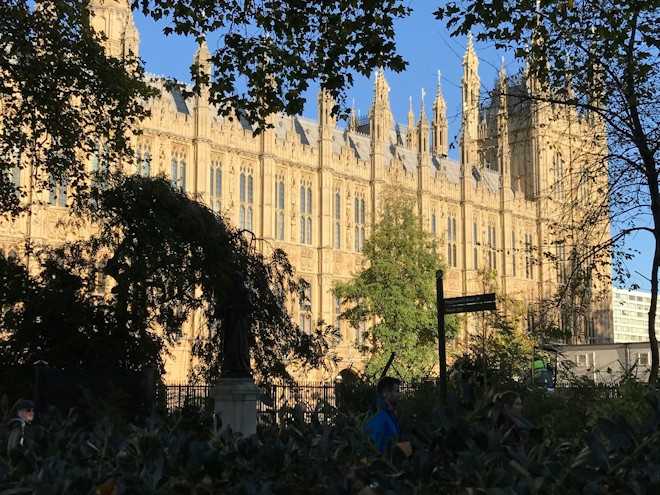Election outcomes significantly impact businesses in a variety of ways, as they can bring about various shifts in government policies. Even in the run up to an election, uncertainty about the outcome can lead to market volatility and changes in business confidence.

Businesses must therefore be ready to navigate different outcomes. And while prime minister Rishi Sunak is yet to call the next UK general election, it must be held by 28th January 2025 and pressure is mounting for it to be sooner. According to the BBC, there is speculation that it could even take place this summer. Update 22/05: There will be an election on 4th July 2024.
Political stability plays a big role in business confidence. When there is stability in governance and policy-making, you can make informed decisions for your business and plan for the future with long-term strategies and investments.
Uncertainty and instability can however lead to a lack of confidence, and you may need to delay investment plans until there is more clarity on the regulatory and economic environment post-election. So what potential changes do you need to look out for?
Potential policy changes and their impact on business
Changes in taxation policies, such as capital gains tax or national insurance rates, can directly impact finances and how much you invest. Regulatory changes can also increase compliance costs, so you may need to adjust your operations and reallocate resources to ensure compliance.
Taxation policies resulting from general elections can have a significant impact on operations. For example, changes in capital gains tax rates can affect the profitability of investments and transactions. Higher tax rates on capital gains can make you less likely to want to sell assets or invest in new ventures. National insurance rates can also impact the cost of employing workers and overall labour costs. Additionally, changes in the tax system, such as the rates of income tax or VAT, can impact financial planning. It’s therefore essential that you stay up-to-date on taxation policies and seek professional advice where necessary.
Regulatory changes resulting from general elections can impose new compliance requirements and increase costs. These changes can include new environmental regulations, labour laws, or industry-specific regulations. For example, stricter regulations on emissions may mean you need to invest in new technologies or modify your operations to reduce your environmental impact. Compliance costs can include expenses related to training employees, implementing new systems, or hiring consultants to ensure you are complying with new regulations.
Example of past general elections and their impact
The 2019 UK general election was won by a significant majority by the Conservative Party, led by Boris Johnson. The central focus of this election was Brexit, with the winning campaign largely centred on ‘Get Brexit Done’. The clear majority helped remove some uncertainty about the UK's departure from the EU, providing businesses with a clearer path forward. However, it also came with its own set of challenges, such as new trade rules, customs procedures, and changes in the labour market. Businesses also needed to review their supply chains, contracts, and relationships with European partners.
The 2017 general election, called by then-prime minister Theresa May, aimed to solidify her mandate for Brexit negotiations. The Conservative Party however lost its majority and formed a coalition with the Democratic Unionist Party (DUP), leading to increased uncertainty at the time regarding Brexit's direction. This uncertainty impacted businesses in various ways. Companies delayed investment decisions, and some sectors, like financial services, saw increased volatility due to concerns over the UK's future trading relationship with the EU.
The 2010 general election also resulted in a hung parliament, leading to a coalition government between the Conservative Party and the Liberal Democrats. The election took place during a period of economic uncertainty following the global financial crisis, leading to a focus on austerity and public spending cuts. Businesses had to navigate a period of fiscal tightening and reduced government spending. While some sectors benefited from the focus on deficit reduction, others, such as public services and infrastructure, faced challenges due to budget constraints.
Sector-specific impacts of general elections
General elections can impact different sectors in different ways, particularly when it leads to a change in government, meaning businesses need to keep on top of what the result could mean for their industry specifically.
The technology sector: innovation and regulation
The technology sector is one of the industries most affected by general elections and political changes in terms of innovation and regulation. Election outcomes can shape policies related to data privacy, cybersecurity, and intellectual property rights. For instance, new regulations on data protection can impact the way customer data is collected, stored, and used. Additionally, election results can influence funding for research and development in this sector, which then directly impacts innovation and technological advancements.
The manufacturing sector: trade agreements and tariffs
The manufacturing sector is highly influenced by general elections, particularly in terms of trade agreements and tariffs. A change in government can lead to shifts in trade policies, which can impact the import and export of goods. Tariffs or changes in trade agreements can also cause an increase in the costs of raw materials, and can limit access to key markets. For example, if a new government adopts protectionist trade policies, it can lead to increased tariffs on imported goods, affecting the competitiveness of domestic manufacturers.
The service industry: labour laws and consumer spending
The service industry can be significantly impacted when it comes to labour laws and consumer spending. Election outcomes can shape policies related to minimum wage, working hours, and worker rights, which can directly affect large workforces. Changes in labour laws can impact the cost of labour and therefore profitability. Additionally, election results can influence consumer confidence and spending patterns, which will then impact revenue.
What can you do to reduce risk during an election cycle?
There are various strategies you can put in place for your business to help navigate some of the uncertainty associated with a general election cycle:
Scenario planning: develop multiple business scenarios based on different election outcomes. This can help you prepare for various policy environments and adjust strategies accordingly.
Stakeholder engagement: engage with stakeholders, including industry associations and government bodies, to stay informed about potential policy changes and advocate for business-friendly policies.
Agility and flexibility: build agility into business operations, allowing for quick adjustments to changing conditions. This can involve flexible staffing, adaptable supply chains, and dynamic business models.
Communication and transparency: communicate openly with employees, investors, and customers about potential risks and opportunities associated with elections. Transparency helps maintain trust and reduces uncertainty.
In conclusion
UK general elections are pivotal events that can reshape the business landscape. While they often come with uncertainty and volatility, they can also offer opportunities for growth. By understanding the impact of past elections and looking at potential scenarios for the upcoming polls, you can go a long way to navigating these challenging periods with confidence.












